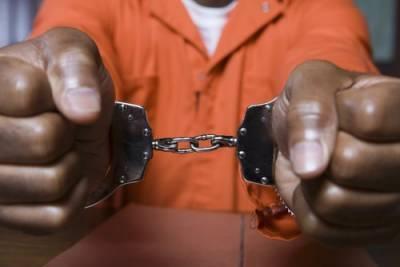Racial Inequities Continue to Affect the U.S. Criminal Justice System
 The laws in the United States are supposed to treat everyone fairly, providing "liberty and justice for all." Unfortunately, the U.S. criminal justice system often falls far short of this ideal, especially in regard to how people are treated differently based on their race. For decades, criminal justice advocates have raised awareness of the racial inequities in the system, noting that Black people are much more likely to be arrested and convicted of crimes than white people, and they also receive longer sentences. Despite knowledge of this issue, racial inequities continue to be a problem, and this has been highlighted by a recent report from the National Registry of Exonerations that has shown that Black people are much more likely to be wrongfully convicted than white people.
The laws in the United States are supposed to treat everyone fairly, providing "liberty and justice for all." Unfortunately, the U.S. criminal justice system often falls far short of this ideal, especially in regard to how people are treated differently based on their race. For decades, criminal justice advocates have raised awareness of the racial inequities in the system, noting that Black people are much more likely to be arrested and convicted of crimes than white people, and they also receive longer sentences. Despite knowledge of this issue, racial inequities continue to be a problem, and this has been highlighted by a recent report from the National Registry of Exonerations that has shown that Black people are much more likely to be wrongfully convicted than white people.
Ongoing Racial Disparities in Cases Involving Wrongful Convictions
The Registry's report analyzed data related to thousands of exonerations that have occurred in the United States since 1989. While Black people only make up around 13 percent of the U.S. population, they accounted for more than 50 percent of all exonerations. Based on this data, Black people are seven times more likely to be wrongfully convicted than white people. This holds true for all categories of serious crime except those that are classified as white collar crimes. However, the report highlighted three specific types of crimes that are most likely to lead to wrongful convictions for Black defendants:
-
Murder - Black people are much more likely to be affected by homicide, and around half of people who commit murder or who are murdered in the United States are Black. Because of this, Black people are about 7.5 times more likely to be wrongfully convicted of homicide than white people. While around 13 percent of murders committed by Black people have white victims, in 26 percent of cases where Black defendants were exonerated of murder charges, they were wrongfully convicted of killing white people. To make matters worse, black defendants exonerated of murder spent an average of three more years in prison than white people who were exonerated of similar charges.
-
Sexual assault - Black people are around eight times more likely than white people to be falsely convicted of sexual assault. These wrongful convictions often occur because victims or witnesses identify the wrong suspects. Even though only 11 percent of sexual assaults in the United States are committed by Black men against white women, these types of cases made up 44 percent of exonerations that involved misidentification by witnesses. In addition, Black people who were wrongfully convicted of sexual assault received longer sentences than white people, and they spent an average of four more years in prison before being exonerated.
-
Drug crimes - Black people are 19 times more likely than white people to be wrongfully convicted on drug charges, even though Black people and white people use illegal drugs at similar rates. These convictions often occur due to racial profiling and other forms of discrimination by police officers. Black people are more likely to be stopped and searched by police, and they are often targeted as suspects for both low-level drug possession crimes and larger-scale cases involving drug distribution and trafficking. In many cases, wrongful convictions have occurred due to illegal actions by police officers against Black defendants, such as planting evidence or falsely stating that defendants attempted to sell drugs to them.
Contact Our Hartford Criminal Defense Lawyer
Sadly, this report only covers one aspect of the justice system: people who have ultimately been exonerated after being wrongfully convicted of crimes. Numerous other people are treated unfairly due to their race or other factors, including those who have been arrested and are being charged with criminal offenses and those who have been convicted and received unfair and unjust sentences. At Woolf & Ross Law Firm, LLC, we fight to protect the rights of defendants in criminal cases, and we work to ensure that people are treated fairly while addressing racial biases, discrimination, and other factors that can lead to unjust results. Whether you need to defend against criminal charges, appeal a wrongful conviction, or determine how to address an unjust sentence, our Connecticut criminal defense attorney can advise you on how to proceed while providing you with strong and effective legal representation during your case. To set up a free consultation, call us today at 860-290-8690.
Source:
https://www.law.umich.edu/special/exoneration/Documents/Race%20Report%20Preview.pdf






